No products in the cart.
Sale
Tigapotide (CAS No. 848084-83-3) | Research-Grade Anti-Tumour Peptide Supplier
Original price was: $28.00.$23.00Current price is: $23.00.
Tigapotide (PCK-3145, CAS 848084-83-3) is a synthetic anti-tumour peptide with potent activity against skeletal metastases in prostate cancer models. It reduces PTHrP production, induces apoptosis, and is valuable for oncology and metastasis research.
Description
Product Description
Tigapotide (CAS 848084-83-3), also known as PCK-3145, is an investigational synthetic peptide with broad anti-tumor activity. It has been primarily studied for its ability to reduce skeletal metastases in prostate cancer, a condition that represents one of the most clinically challenging aspects of advanced disease. The peptide was designed to intervene in multiple tumor-promoting processes, including tumor-induced bone remodeling, metastatic spread, apoptosis resistance, and dysregulated signaling pathways.
Prostate cancer metastasis to the skeleton is a hallmark of advanced disease, often leading to bone pain, pathological fractures, spinal cord compression, and hypercalcemia. Tigapotide was developed with the specific goal of mitigating skeletal metastasis through unique biological mechanisms. Unlike conventional chemotherapeutics, Tigapotide does not rely solely on direct cytotoxic effects; instead, it exerts multi-modal anti-metastatic activity that includes suppression of parathyroid hormone-related peptide (PTHrP), induction of tumor cell apoptosis, and interference with the tumor–bone microenvironment.
Chemical and Pharmacological Properties
Tigapotide is a peptide of defined amino acid sequence, synthesized using solid-phase peptide synthesis (SPPS) with rigorous GMP manufacturing standards. The purity typically exceeds 98%, as verified by high-performance liquid chromatography (HPLC). The peptide is supplied in lyophilized form for stability and long-term storage, and it reconstitutes readily in aqueous buffers for in vitro and in vivo applications.
From a pharmacological perspective, Tigapotide acts through multiple pathways:
Anti-metastatic effect: By lowering PTHrP levels, Tigapotide reduces osteoclast activation and bone resorption, thereby slowing the vicious cycle of skeletal metastasis.
Apoptosis induction: The peptide triggers apoptotic signaling cascades within tumor cells, contributing to tumor regression in preclinical models.
Microenvironmental modulation: Tigapotide interrupts tumor–stroma interactions, which are critical for metastatic niche establishment.
Research Importance
The importance of Tigapotide lies in its ability to bridge oncology, endocrinology, and skeletal biology. It provides researchers with a unique tool to explore:
How metastatic prostate cancer manipulates bone remodeling.
The regulatory role of PTHrP in tumor-induced skeletal changes.
The potential of peptide-based therapies as safer, targeted alternatives to conventional chemotherapy.
Comparative Advantages
Compared with standard agents such as bisphosphonates or denosumab (which also target bone metastasis), Tigapotide offers distinct advantages:
It combines direct anti-tumor activity with indirect anti-metastatic effects.
It shows potential for lower systemic toxicity due to its peptide nature.
Its mechanism is complementary to existing bone-targeting agents, making it suitable for combination research.
In preclinical settings, Tigapotide has demonstrated activity not only in prostate cancer but also in models of other solid tumors with metastatic tendencies, making it a versatile peptide for oncology research.
Product Specifications
| Parameter | Details |
|---|---|
| Product Name | Tigapotide |
| Synonyms | PCK-3145 |
| CAS Number | 848084-83-3 |
| Molecular Formula | C____H____N____O____ (exact formula available upon request) |
| Molecular Weight | To be confirmed based on peptide sequence |
| Appearance | White to off-white lyophilized powder |
| Purity | ≥ 98% (HPLC) |
| Solubility | Soluble in water, PBS, and standard peptide buffers |
| Stability | Stable for ≥24 months in lyophilized form; shorter stability after reconstitution |
| Storage Conditions | -20°C (long-term); avoid repeated freeze–thaw cycles |
| GMP Compliance | Produced in GMP-certified facility |
| Applications | Oncology research, metastasis inhibition studies, apoptosis research, PTHrP regulation |
| Availability | Wholesale & retail |
Expanded Notes
Molecular Integrity: Verified by mass spectrometry and amino acid analysis.
Experimental Flexibility: Can be used across in vitro assays (cell culture), in vivo rodent models, and biochemical pathway studies.
Reconstitution Guidance: Recommended to dissolve initially in sterile water or DMSO, then dilute with appropriate buffer.
Safety Considerations: Laboratory research only; not for human or veterinary administration.
These specifications are designed to ensure researchers receive a highly reproducible, quality-controlled peptide suitable for demanding oncology and pharmacological investigations.
Mechanism of Action & Research Applications
Tigapotide’s mechanism of action is multifaceted, integrating tumor biology, apoptosis induction, and bone microenvironment modulation.
1. Apoptosis Induction
Tigapotide activates caspase-dependent apoptotic pathways in tumor cells. This activity is critical because apoptosis resistance is one of the hallmarks of cancer progression. By re-sensitizing tumor cells to programmed cell death, Tigapotide enhances tumor regression in experimental settings.
2. Suppression of PTHrP
One of Tigapotide’s most distinctive mechanisms is the suppression of parathyroid hormone-related peptide (PTHrP). PTHrP is a major mediator of tumor–bone interactions, driving osteoclast activity and pathological bone resorption. By reducing PTHrP secretion from tumor cells, Tigapotide interrupts this cycle, thereby mitigating bone metastasis.
3. Modulation of the Tumor–Bone Microenvironment
Metastatic tumor cells create a supportive niche in the bone microenvironment, recruiting stromal cells, osteoblasts, and immune components. Tigapotide disrupts this niche formation, limiting the tumor’s ability to colonize and expand in skeletal tissue.
4. Broader Research Applications
Prostate Cancer Research: As a model agent for studying skeletal metastasis pathways.
Bone Biology: A tool to investigate how tumors influence osteoclast–osteoblast balance.
Apoptosis Pathways: Suitable for experiments on caspase signaling, mitochondrial depolarization, and tumor cell survival.
Translational Oncology: Preclinical foundation for developing new peptide-based anti-metastatic therapies.
Combination Studies: Can be combined with chemotherapy, hormone therapy, or bone-targeting agents for synergy research.
5. Translational Relevance
Tigapotide’s effects highlight the growing importance of multi-targeted therapeutic peptides. Unlike small-molecule inhibitors that act on a single receptor, Tigapotide demonstrates system-level regulation—impacting tumor cells directly while reshaping the microenvironment that sustains metastasis.
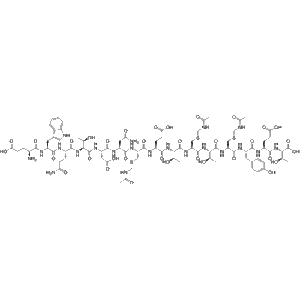
Side Effects (For Reference in Research Models)
Experimental research with Tigapotide has provided insight into its tolerability and potential side effects in laboratory models:
Injection Site Reactions: Mild local irritation observed in subcutaneous administrations.
Metabolic Changes: Limited effects on weight or general metabolism, but dose-dependent variation may occur.
Hematological Parameters: Some studies note mild fluctuations in red and white cell counts.
Liver and Kidney Function: High-dose models occasionally reveal transient changes in enzyme activity, though without overt toxicity.
Off-Target Effects: Minimal compared to standard chemotherapeutics; however, systemic distribution may affect unrelated tissues.
Species Variability: Side effect profiles can vary across rodent, primate, and other models, highlighting the importance of dose titration.
Overall, Tigapotide demonstrates a favorable tolerability profile in preclinical models, aligning with the peptide’s design as a targeted, biologically compatible research agent.
Disclaimer
For laboratory research use only. Not for human or veterinary use.
Keywords
Tigapotide
PCK-3145 peptide
Anti-tumor research peptide
Prostate cancer metastasis peptide
Apoptosis-inducing peptide
GMP supplier Tigapotide
Oncology research peptide
PTHrP inhibitor peptide
Laboratory cancer metastasis model
Additional information
| Weight | 0.8 kg |
|---|---|
| Dimensions | 53 × 2653 cm |
What is Tigapotide?
Tigapotide (PCK-3145) is an investigational anti-tumor peptide studied for reducing skeletal metastasis in prostate cancer.
What is the CAS number of Tigapotide?
CAS No. 848084-83-3.
How does Tigapotide work?
It induces apoptosis, suppresses PTHrP secretion, and disrupts the tumor–bone microenvironment.
What are its research applications?
Prostate cancer metastasis, apoptosis pathways, bone biology, and translational oncology studies.
Does it directly kill tumor cells?
Yes, Tigapotide induces apoptosis while also modulating the tumor microenvironment.
What is its purity?
≥98% by HPLC.
Is Tigapotide GMP-certified?
Yes, manufactured under GMP standards.
What is its storage condition?
Store lyophilized at -20°C; avoid repeated freeze–thaw cycles.
Is Tigapotide soluble in water?
Yes, it dissolves in aqueous buffers and PBS.
Can Tigapotide be used in humans?
No, it is for laboratory research only.
What models are used for Tigapotide studies?
Rodent xenograft models, skeletal metastasis models, and in vitro tumor assays.



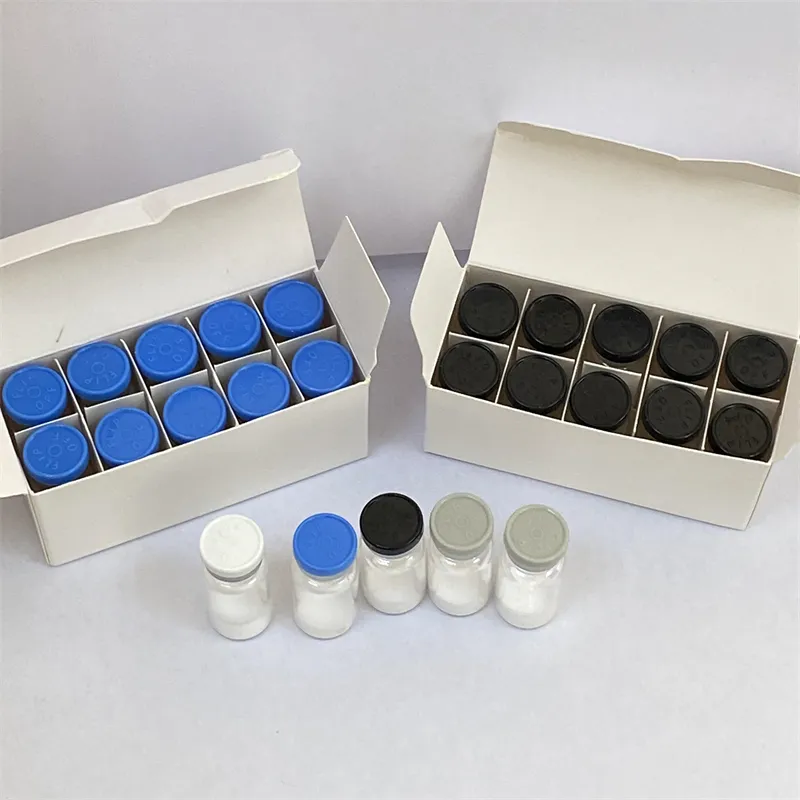
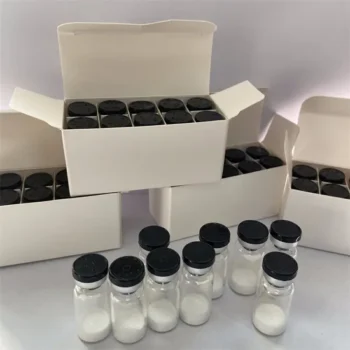
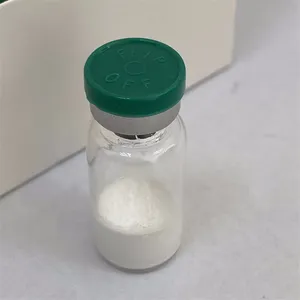
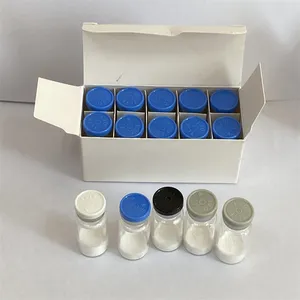

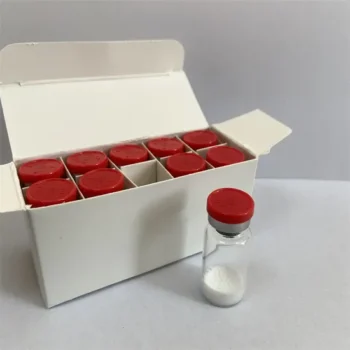

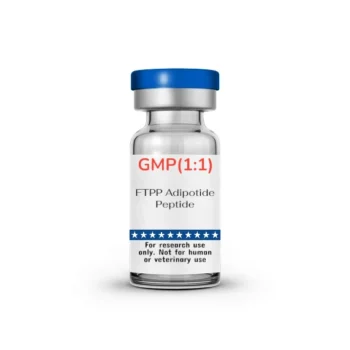
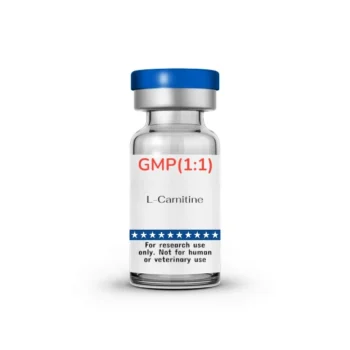
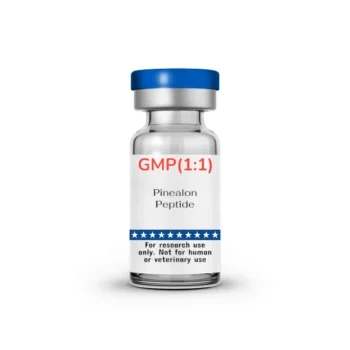


Reviews
There are no reviews yet.